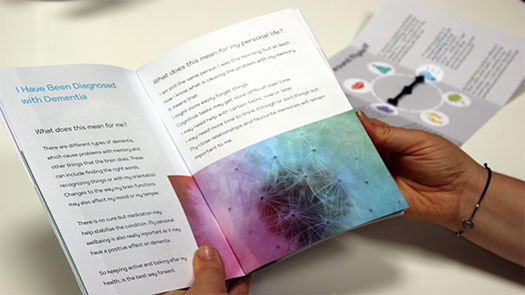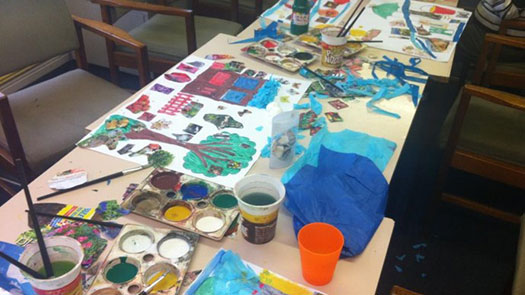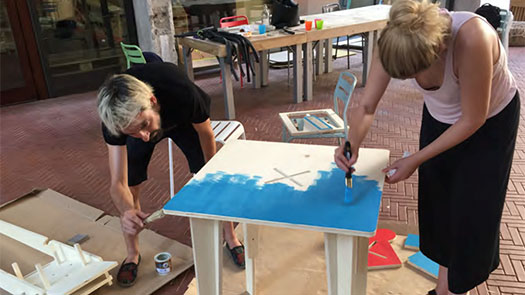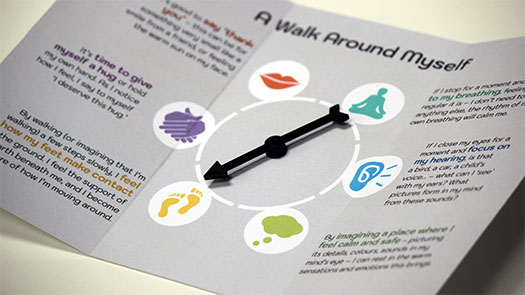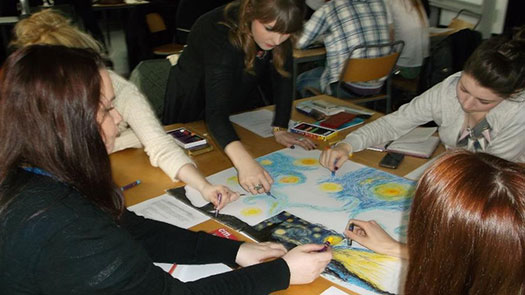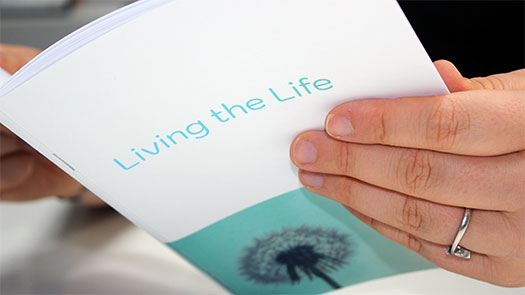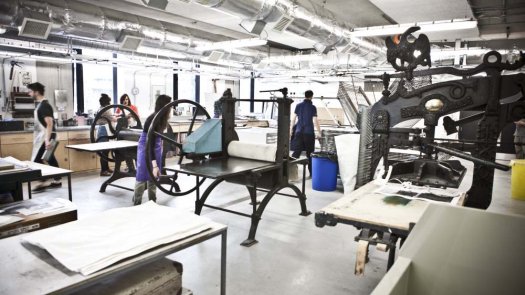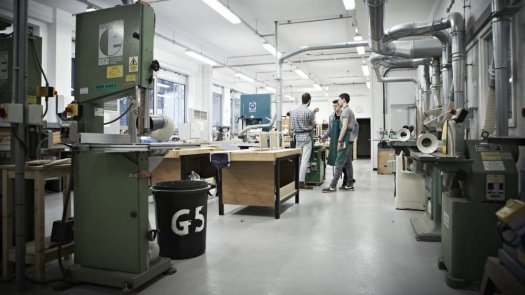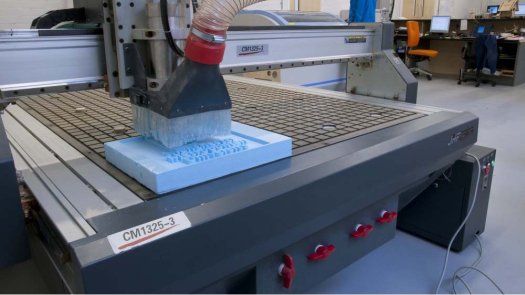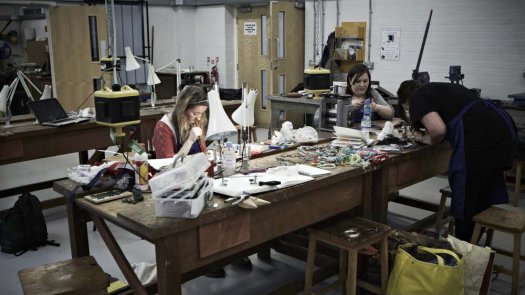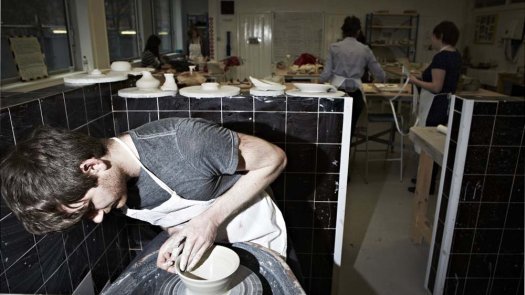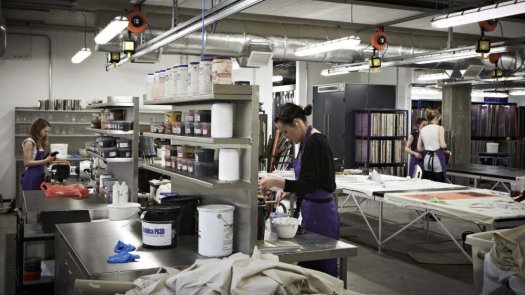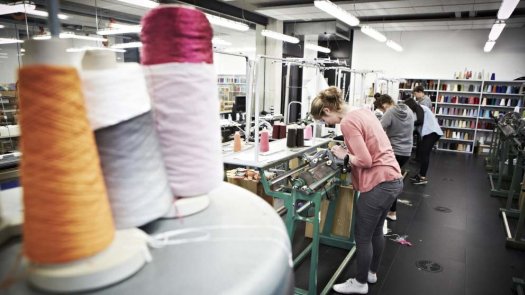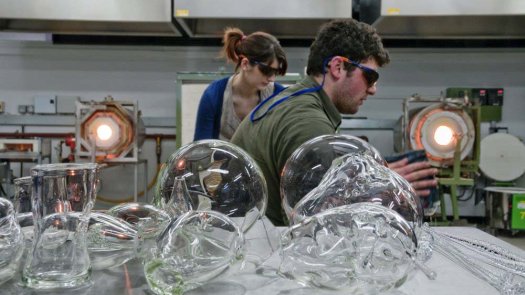Design for Health and Wellbeing
Design for Health and Wellbeing
MA Design for Health and Wellbeing offers those working in - or interested in developing their skills in - design, health and wellbeing the chance to engage in real-life opportunities to address social and societal challenges related to health and wellbeing. It encourages those from both creative and scientific backgrounds to learn from and become leaders in the field in research and practice.
Mental and physical health and wellbeing are an essential foundation for all people, from childhood into old age. However, much of mental and physical health provision still relies on a treatment perspective. By contrast, this MA will promote holistic and preventive strategies that recognise and respond to people’s needs, wants, wishes and rights to further health, wellbeing, and equality.
Students on the programme will hold the critical belief that creativity and design have a significant part to play in designing interventions to further health and wellbeing, and they will hold a conviction that through its co-creative and collective approaches, design offers new ways of reimagining public and community health.
Covering the three key areas of context and policy, co-design and design outcomes and interventions, this comprehensive programme will enable you to gain the knowledge and experience needed to propel your career in a fast-developing field.
Features
- —Explore current understandings of health and wellbeing and their social and cultural implications to inform the development of prevention and support interventions.
- —Benefit from transdisciplinary partnerships with fellow postgraduate students across the University.
- —Gain hands-on experience from our links to local charities and non-profit organisations such as the RNIB, Venture Arts and Rainbow Haven.
Course Content
The programme will cover three key areas of study:
- Context and Policy - an examination of current understandings of health and wellbeing and their cultural and social implications.
- Co-Design - focusing on public engagement to develop best practices for new services and interventions.
- Design Outcomes and Interventions - an exploration of the role of design-based outputs and methodologies to promote health throughout life, from childhood to old age.
The programme leader for this course is Dr Lynn Setterington.
Year 1 (MA Full-Time)
The course is made up of the following modules.
Art & Design: Culture & Context (MA:X)
This module offers focussed opportunity for students to extend and enhance their practice by including working in a wider design research community. The study of the cultural and critical contexts of design practice is vital to any student of the creative disciplines, this module will develop Master’s students’ abilities to contextualise their practice through a series of themes addressing contemporary issue in design.
Co-Designing with Users
Public engagement and co-design is an essential part of designing for health and wellbeing. In order to benefit those people we want to reach, we need to work with them to design innovations and interventions that are appropriate and fit for purpose. The module will build on and deepen the experience of the Design Thinking module, examining in depth concepts of co-design, co-production and co-creation and related practices and approaches to explore how we understand, interact and collaborate with others. During this module, students will establish a community of expertise where new critical and applied solutions emerge through collective research and practice. Transdisciplinary groups work on relevant themes or projects, and links are made with public, health and governmental organizations as well as communities in a variety of relevant settings.
Design Development in Practice
In this module, students will review their learning so far, consider their emerging design philosophical perspectives and creative directions, and explore and propose ideas for their MA project. They will consider examples of existing design areas and approaches to design for wellbeing interventions. Working individually or in project teams, students will discuss creative directions and potential interventions with external partners across Greater Manchester and/or wider international communities of interest. Initial project proposals are advanced and refined through, for example, project planning, professional ethics and expert feedback to test the overall validity and appropriateness of the proposal.
Design Thinking
This module introduces an applied understanding of how design can be used as an iterative process for creative problem solving. It will enable you to understand how to apply design thinking processes to your specialist area through understanding users, challenging assumptions, redefining problems and creating innovative solutions to prototype and test. The module will also provide a broad introduction to research methodologies, strategic research planning and research design. A range of design thinking tools will be introduced and explored before you undertake an in-depth project that provides opportunities for experimentation leading to innovative solutions.
Synthesis Project: Design for Health and Wellbeing
In this module, students will bring together their learning experiences to develop their core project. Students will work with relevant local communities and/or stakeholders to offer novel ways of exploring pressing health and social concerns, where Greater Manchester will be an incubator of step-changing research and innovation. Project work is self-generated by the student(s) and is expected to evidence a synthesis of knowledge, understanding, skills and expertise acquired across the duration of the programme. With this module, students will decide whether to study for an MA or an MSc in line with university criteria for MA/MSc study.
Resources
We have developed a dedicated postgraduate area occupying an entire floor of the main School of Art building, offering an exciting space to be, both intellectually and practically. The centre is located in the Chatham Tower with studios, design laboratories, seminar rooms and extensive workshops that form the nucleus of this vibrant, cross-disciplinary learning environment.
Find out more about Manchester School of Art's facilities.
Student Work
Visit our online MA Show galleries to see examples of recent work by our postgraduate students.
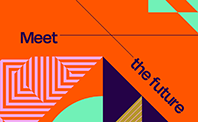





Graduates
Graduates of Design for Health and Wellbeing will possess the skills and characteristics needed for a variety of career paths, including product designer, design researcher/strategist, UX designer and design consultant. Beyond design fields, graduates will also be equipped to pursue careers as workshop managers, community art and outreach co-ordinators, wellbeing support workers and more.
Making an Application
Entry Requirements
You will normally have a minimum 2:2 UK undergraduate honours degree (or equivalent) in a related subject and must submit a portfolio. We may request an interview as part of the application process, which can be in person or online.
Overseas applicants will require IELTS with an overall score of 6.5 and no less than 5.5 in any category, or an equivalent accepted English qualification.
How to Apply
Please apply online using the link below.
Fees 2025 Entry
UK and Channel Island students
Full-time fee: £12,000 per year. Tuition fees will remain the same for each year of your course providing you complete it in the normal timeframe (no repeat years or breaks in study).
EU and non-EU international students
Full-time fee: £22,000 per year. Tuition fees will remain the same for each year of your course providing you complete it in the normal timeframe (no repeat years or breaks in study).
Additional information
A masters qualification typically comprises 180 credits, a PGDip 120 credits, a PGCert 60 credits, and an MFA 300 credits. Tuition fees will remain the same for each year of study provided the course is completed in the normal timeframe (no repeat years or breaks in study).
Eligible alumni receive a 20% discount on their postgraduate tuition fees. Find out more about our Alumni Loyalty Discount.
Course Leader
- Lynn Setterington
Senior Lecturer, MA Design
Course Leader, MA/MSc Design for Health & Wellbeing
—
